Frost Update
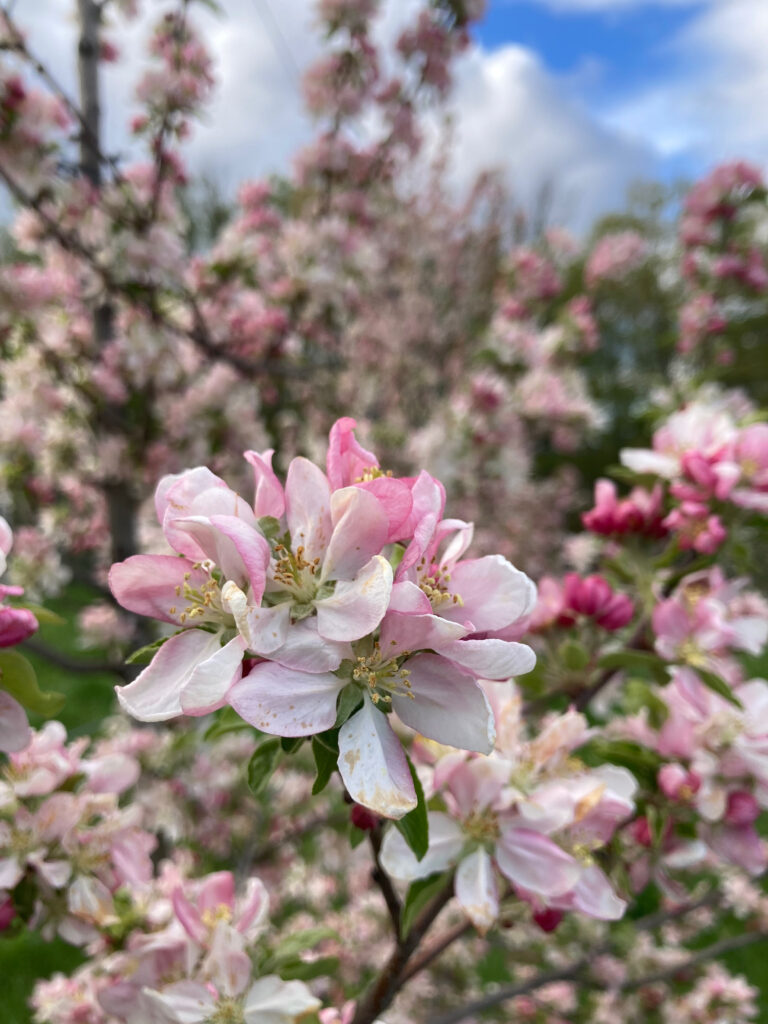
As you may have heard, we lost our entire crop in a freak weather event on May 18th. With bloom behind us and most varieties in the 2-4mm fruitlet stage of phenological development, we experienced 5 hours at 25 degrees fahrenheit. We still haven’t quite wrapped our heads around it. The nature of the way we make cider, season by season, slowly in barrels and bottles, means we are releasing and selling ciders at any given moment from a crop we harvested in a previous year and tended to in the year before that. In the cidery, we’ve been busy shepherding the 2022 ciders through the cider making process and in the orchard we’ve been busy caring for the trees and setting up the 2024 harvest. I will be honest and say there has been a bit of denial going on here on the farm. Now that September is approaching, the lack of a harvest is finally hitting home and the sadness is setting in. Financial worries aside, the reality is that we’ve spent the last 21 years madly picking apples in September and October and this year there are just not that many apples to pick. It feels so different.
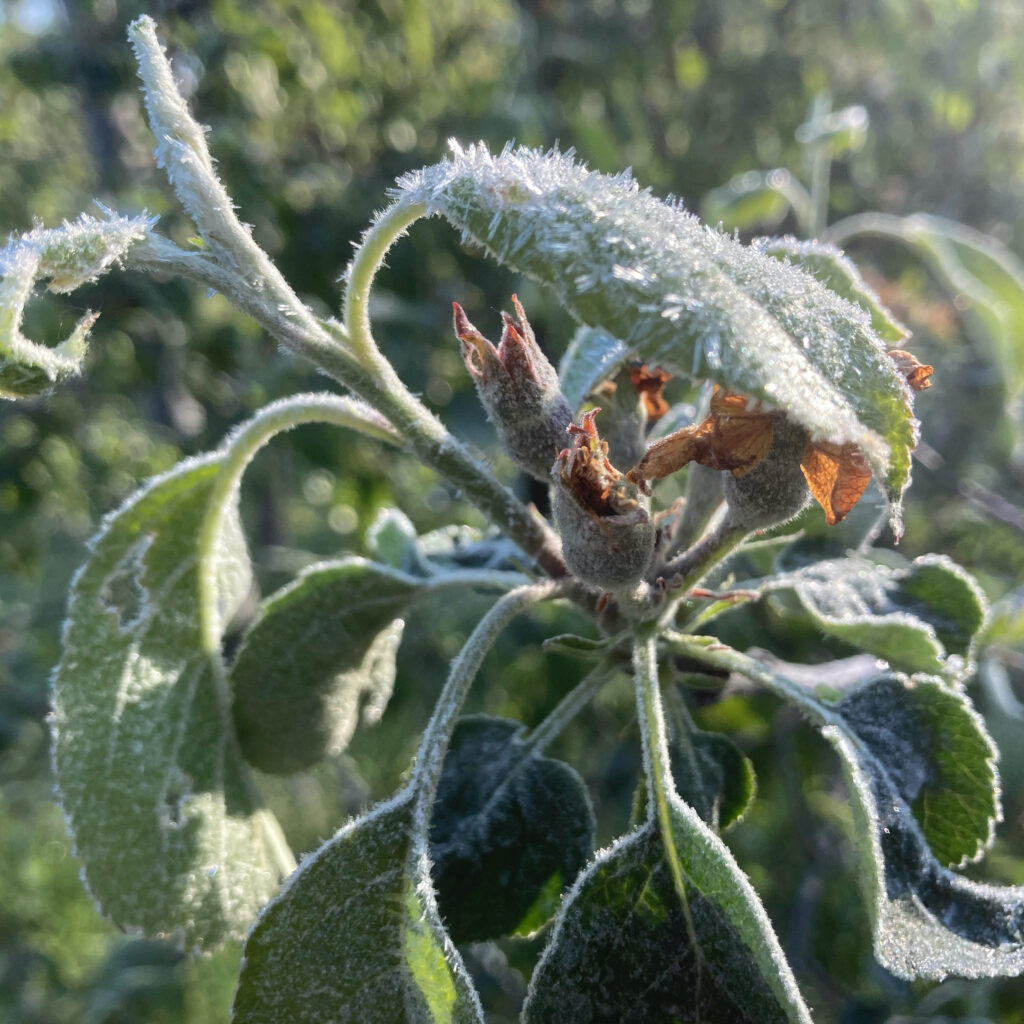
I’ll admit: I’ve been worrying about climate change most of my life. In 1991, when I was 11 years old, I made a tee-shirt with fabric markers that said “Celebrate Earth Day Stop Global Warming” and wore it to a local picnic where I was teased mercilessly. Back in that era, “Global Warming” was the silly anxiety of fringe greenies. But for all my worry and dread, I wouldn’t have been able to foresee how a rise in atmospheric C02 would directly impact me in the future, or that one alarming effect of a changing climate would be the blurring of distinct seasons that would directly impact the ability to grow apples in New York State.
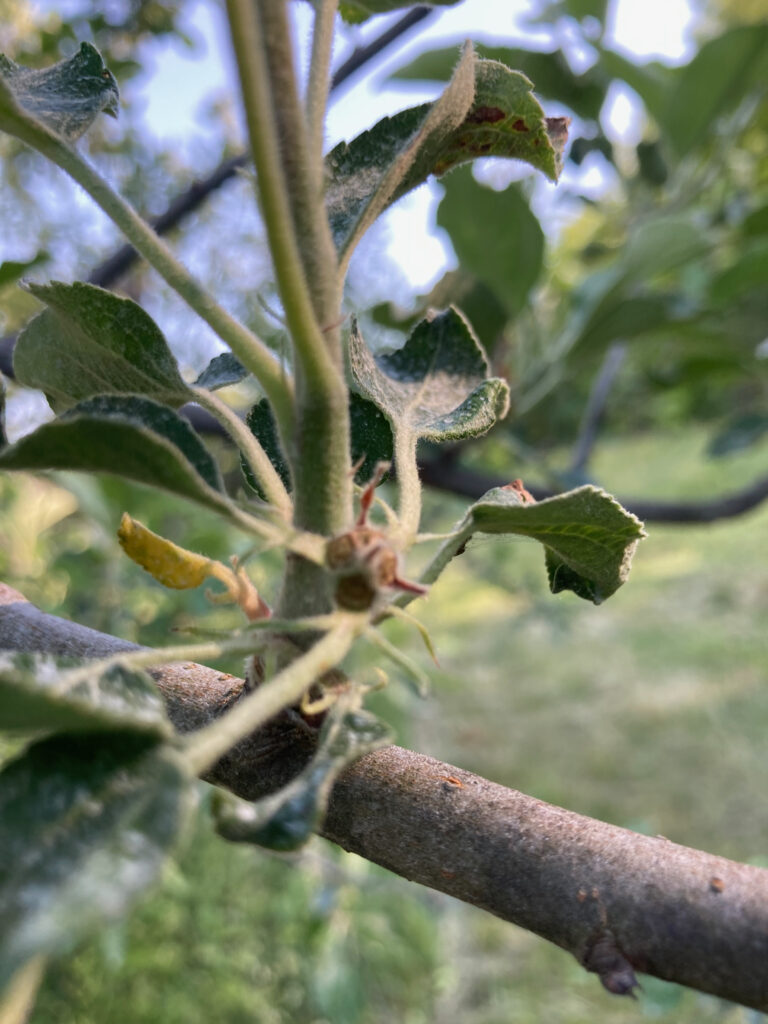
The May 18th event was the equivalent of a February night, but occurring just a week ahead of the “frost free” date for our region. (That's the date everyone goes and plants their tomatoes outside in the garden). It wasn’t just human planted crops that suffered. The hickories and oaks were leafing out and flowering at the time of the freeze and there is barely a nut in sight in our woods this year. It’s a lean year for the squirrels and deer as well.
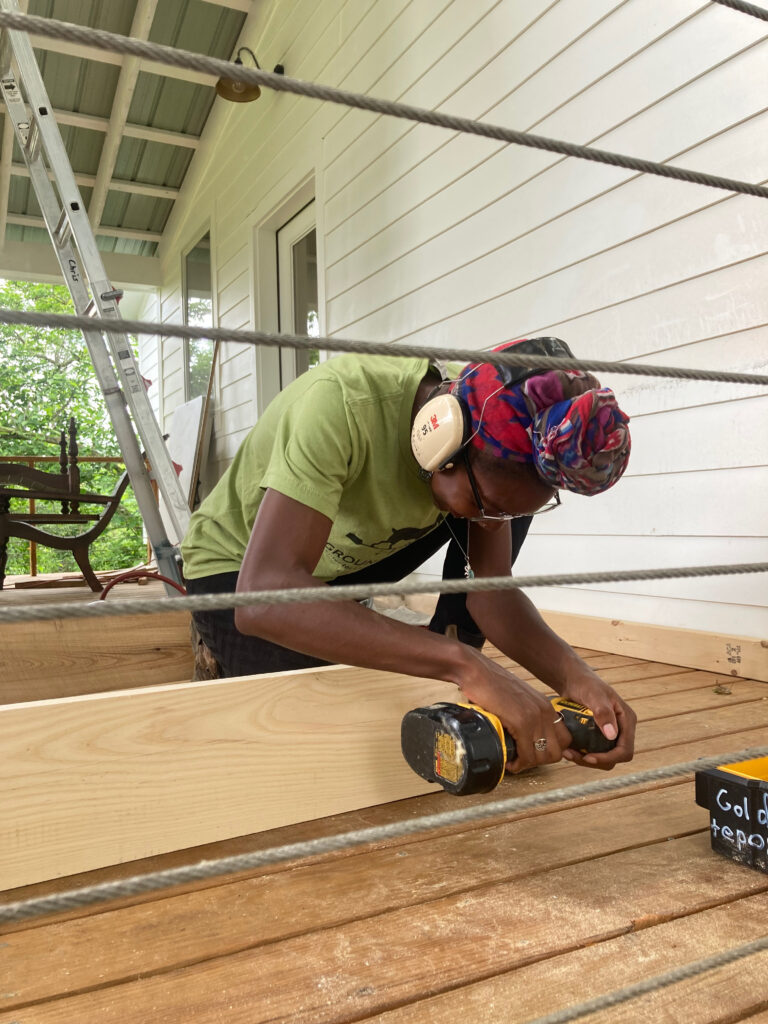
When you are in it for the long haul, the way we are with orcharding, responding to this kind of crisis is as much about planning for the event to occur again as it is figuring out how to cope in the here and now. We’ve been given the opportunity to take a close look at our strengths and weaknesses. Standing out in this inventory are relationships with friends and colleagues in the cider, wine and orchard communities and beyond. Building networks with a culture of trust, collaboration and mutual aid can leave you with a tremendous sense of logistical and emotional support when facing a crisis like this. Realizing that we have friends who are going to share fruit, sell fruit, teach us how to try fermenting things other than apples, keep employees supported, and keep supporting local farms makes the year feel doable. It also shows how community is a vital resource, to be cultivated and treasured, same as we do with land and water. This hits home as I’ve been thinking alot lately about how some of the concepts I was raised up with in the sustainable farming movement revolved around self-sufficiency and how problematic those ideas were, especially now, in the context of climate chaos.
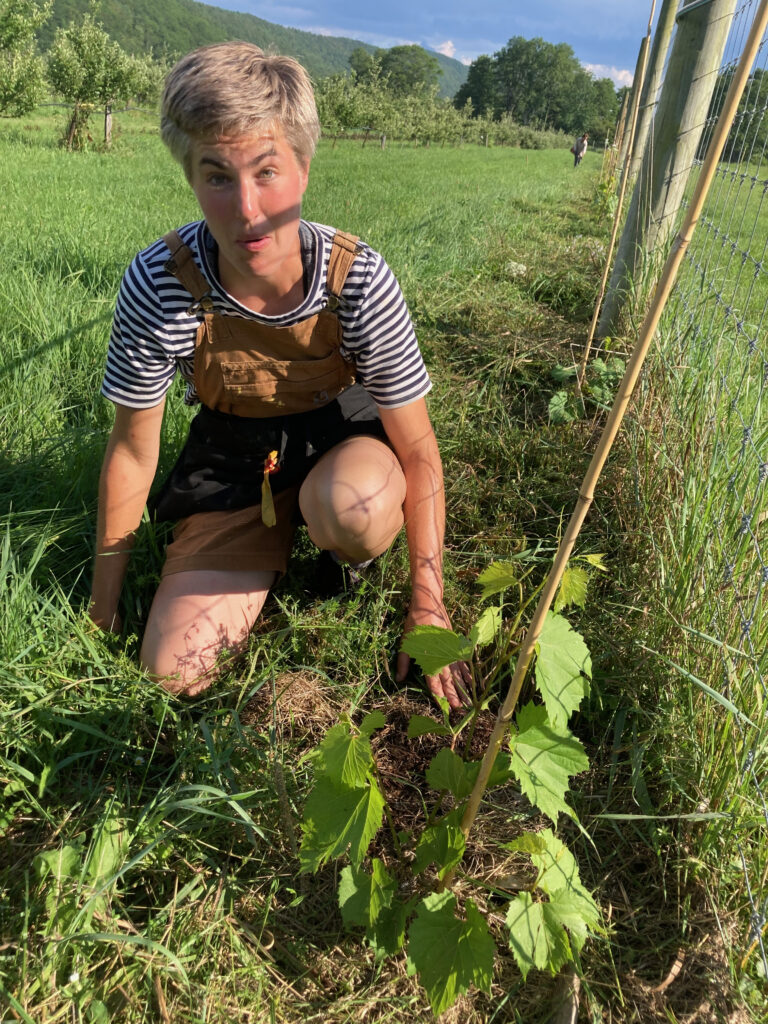
For us, responding to climate disaster looks like everything from making mead for the first time ever, to buying fruit from other growers, to planting hybrid grapes, to alley cropping basket willows, to starting an air bnb to dreaming about starting an apple brandy cooperative. All of this takes community.
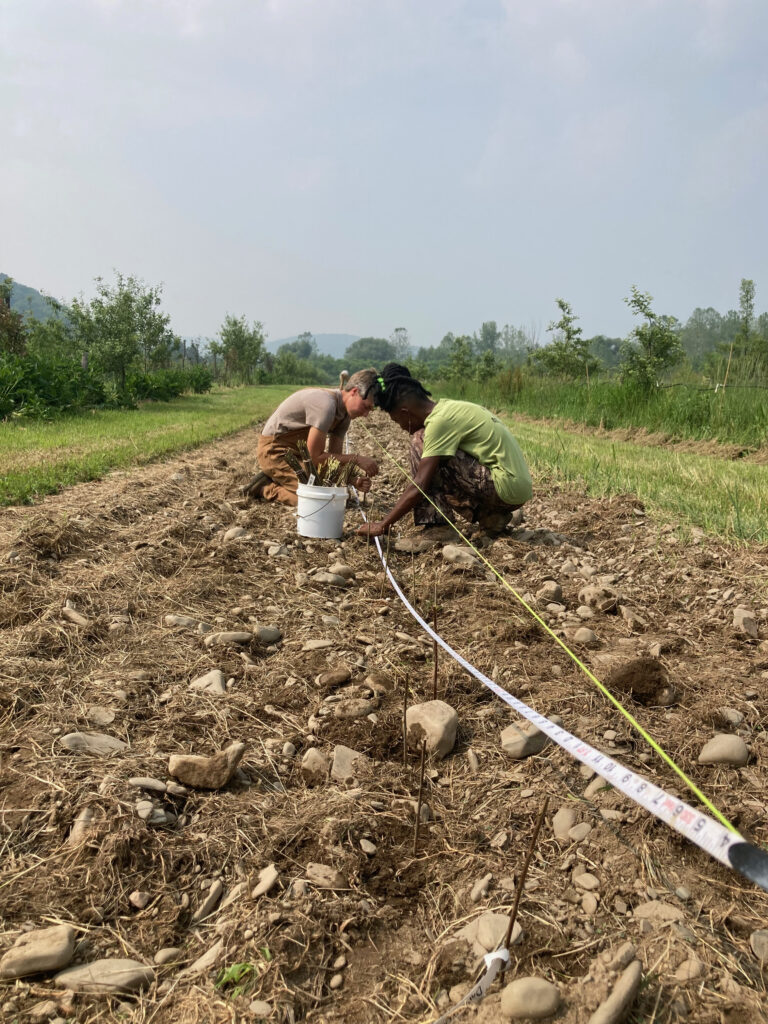
Of course you, dear reader are part of that community. Thank you for your support through thick and thin. Thank you tremendously for the opportunity to tell stories of time and place through cider and sustain the building of a hopeful orchard in the hills.
-Posted by Autumn 09/04/2023
